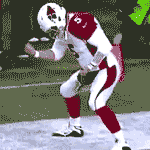|
It might be about time to drop this discussion with fishmech. Like usual, there's no point. And everyone else ITT already agrees with the pro-bicycle infra arguments. Not much point in dragging this out for 10 more pages. I do hope that the (re)sources people posted turn out useful for people who need to convince others in a professional setting.
|
|
|
|

|
| # ? May 12, 2024 14:18 |
|
/\/\/\ Alright, last one then.Nintendo Kid posted:It's not a no true scotsman. quote:I would rather suspect Tokyoite bike share to not change all that much, because most other forms of transporation are still jsut a sgood as before. It would most likely result in the bike share being safer and more comfortable. quote:If you have bike infrastructure up the rear end it's still not going to get you going all that fast without putting some serious effort to the gears. Many light rail systems run as fast as 50-60 mph between stops, even in cases where they're running on or between roads. Even slower ones will still do a good 25-35 when surrounding traffic is crawling. quote:Again, I'm not saying absolutely everyone who bikes is miserable. I'm saying it would be a miserable experience for a lot of people, in America (and Canada etc), even with great infrastructure, because of various geographical and climate conditions. Which would combine to there never being all that much people biking. * for example, any time someone calls something you say out that was clearly wrong, like the thing about the Dutch never having had a chance to become car dependent because they were too poor, I've noticed you just ignore it in your future replies, rather than acknowledge your mistake. Do you do that consciously, or is it some kind of cognitive dissonance thing where your brain is incapable of recognizing when you're at fault? Cicero fucked around with this message at 01:30 on Nov 5, 2015 |
|
|
|
It's a good idea to stop getting fishmeched, but it's really not a fallacy to say transit needs to be faster than biking to be good. For comparison, a bike lane that isn't faster than walking is abysmal, and yet biking and walking are both valid. There are other factors to consider than raw speed.
|
|
|
|
Dylan16807 posted:It's a good idea to stop getting fishmeched, but it's really not a fallacy to say transit needs to be faster than biking to be good. For comparison, a bike lane that isn't faster than walking is abysmal, and yet biking and walking are both valid. There are other factors to consider than raw speed. Exactly! There's no reason to just call a particular transit system good because some of it exists. Cicero posted:
Time isn't the only factor. People will accept taking extra time as long as they can be lazier during that time. As a matter of fact this is why transit remains popular in New York City despite the fact that a lot of the time you could get from place to place faster (albeit more annoyingly) by car - hanging around the subway or a bus is far less stressful then dealing with driving.
|
|
|
|
Dylan16807 posted:It's a good idea to stop getting fishmeched, but it's really not a fallacy to say transit needs to be faster than biking to be good. Nintendo Kid posted:Time isn't the only factor. People will accept taking extra time as long as they can be lazier during that time. As a matter of fact this is why transit remains popular in New York City despite the fact that a lot of the time you could get from place to place faster (albeit more annoyingly) by car - hanging around the subway or a bus is far less stressful then dealing with driving. Carbon dioxide posted:I do hope that the (re)sources people posted turn out useful for people who need to convince others in a professional setting. Cicero fucked around with this message at 02:02 on Nov 5, 2015 |
|
|
|
Can we argue about something that isn't bikes, please?
|
|
|
|
Stop arguing with Fishmech, god.
|
|
|
|
OK, lemme check SA after two days of being too busy. Hmmm ... 68 new posts in the traffic engineering thread, I wonder what's ...   . . Nintendo Kid posted:By this standard the massive car dependence of America is good. No. See below. Anyway, to get back to the post that started it all: Carbon dioxide posted:Hahahaha, changing rooms, what? Vancouver is hilly, and the university is at the top of a hill. Also, the hip neighbourhoods with high cycling mode share are 12 and 16km from the university, so a lot of people are biking from pretty far away. But yeah, I get what you're saying about the cycling culture, and it's something I'll keep in mind in future advocacy work. I'd much rather see comfortable cycling facilities for more casual style cycling than more showers for road warriors (although the showers are kinda nice as things stand right now).
|
|
|
|
Simon Fraser is in a really dumb spot. The site, the infrastructure, the architecture, it's a time capsule from a very bad era. Makes a great set for scify but that's about it.
|
|
|
|
will_colorado posted:What does it take to get a control city changed on the big green interstate signs? I don't know but in an effort to post about anything but bikes v transit, have my favorite control city sign:  This sign outside LA-- the control city should probably be phoenix instead of "other desert cities", but it's not
|
|
|
|
will_colorado posted:What does it take to get a control city changed on the big green interstate signs? It's 100% political clout - but it's clout in the right circles. The decisions are all made in a bar after the AASHTO conferences. (Don't tell Stamford; they've wanted to be a control city on I-95 for at least a decade.)
|
|
|
|
Qwijib0 posted:I don't know but in an effort to post about anything but bikes v transit, have my favorite control city sign: That sign actually make sense because there's a whole bunch of cities in the Palm Springs-Indio retirement home/meth lab/surprising gay mecca. Indio is the control city even though no one actually wants to go to Indio and 111 really only makes sense for palm springs and not Destert hot Springs or Palm desert or wherever. If it said "Phoenix" a bunch of old people might go to plam springs and gently caress up "downtown" traffic instead of going to Indian Wells or something.
|
|
|
|
So, they changed a bunch more Dutch highways from 120 km/h to 130 km/h. It's mostly a political thing. Traffic experts are saying the roads are crowded enough that there's no real difference, especially because most Dutch highway journeys are under 100 kilometers. Some expert who was interviewed said that with the amount of cars on Dutch highways, you get the smoothest traffic flow at around 90 km/h. All this does is appease the political right and increase emissions.
|
|
|
|
Carbon dioxide posted:So, they changed a bunch more Dutch highways from 120 km/h to 130 km/h. It's mostly a political thing. Traffic experts are saying the roads are crowded enough that there's no real difference, especially because most Dutch highway journeys are under 100 kilometers. Some expert who was interviewed said that with the amount of cars on Dutch highways, you get the smoothest traffic flow at around 90 km/h. Car culture is a right wing political issue even in the Netherlands? 
|
|
|
|
Lead out in cuffs posted:Car culture is a right wing political issue even in the Netherlands? Yep. Apparently the original cyclists union actually slowly morphed into a general sort of commuter's union which morphed into a rabidly pro-car movement that now lobbies against bike and pedestrian infrastructure as wasteful spending which could be spent on bigger highways, which is why the current actual cyclists union had to form. Even when you have nice things and are looked at as a world leader in a field, you have to constantly fight to keep improving things or right wing reactionary groups like that will tear it all down and it will be dead children in the streets all over again. The dutch only have nice things because a massive grass roots protest movement started in the cities which realized car culture was bullshit and was destroying their cities and was killing them in shocking numbers, specially children. They took back the streets and relegated the car to a more balanced position in transportation. Baronjutter fucked around with this message at 19:42 on Nov 6, 2015 |
|
|
|
Baronjutter posted:Yep. Apparently the original cyclists union actually slowly morphed into a general sort of commuter's union which morphed into a rabidly pro-car movement that now lobbies against bike and pedestrian infrastructure as wasteful spending which could be spent on bigger highways, which is why the current actual cyclists union had to form. The original cyclists union still has 'cyclists' (the archaic word 'wheelriders', actually) in their full name. Although I think their official point of view is that their abbreviation doesn't stand for anything any more.
|
|
|
|
They've been running ads on NYC radio about how the city speed limit really is 25 MPH, and even travelling 30 MPH is much more dangerous for pedestrians. Good luck with that.
|
|
|
|
smackfu posted:They've been running ads on NYC radio about how the city speed limit really is 25 MPH, and even travelling 30 MPH is much more dangerous for pedestrians. Actually, that's really hopeful. Most pedestrian safety campaigns focus on victim blaming - telling pedestrians to stay out of the road. This is with very few exceptions (notably the Australian "Speed Kills" adverts in the 90s). When a campaign actually targets the people operating the half-ton killing machines, that's a positive deviation from past norms.
|
|
|
|
Lead out in cuffs posted:Actually, that's really hopeful. Most pedestrian safety campaigns focus on victim blaming - telling pedestrians to stay out of the road. This is with very few exceptions (notably the Australian "Speed Kills" adverts in the 90s). When a campaign actually targets the people operating the half-ton killing machines, that's a positive deviation from past norms. But yeah I agree with you. This kind of advertising isn't going to have an immediate reaction, but it can gradually set the cultural tone, just like how seatbelts took a long time before everyone used them. Then once most people agree at least in theory that people should really be traveling 25 or under, then that makes it politically easier to step up both enforcement and engineering.
|
|
|
|
Unfortunately telling people to slow down never works. Doesn't matter if it's over the radio or a big official sign by the side of the road. Unless there's brutal enforcement people will drive what they think is a safe speed for the street, which depending on the design can be deceptively too fast or too slow. A badly designed street feels safe to drive fast on but actually isn't, a well designed street feels unsafe to speed on but is actually safe. You don't slow people down with speed limits, you slow them down with design. Narrow the lanes, install trees and other obstructions that both protect pedestrians and slow cars down, add little curves and medians cars have to maneuver around. Don't add pointless stop signs, and speed bumps are pretty lovely too.
|
|
|
|
Baronjutter posted:Unfortunately telling people to slow down never works. Doesn't matter if it's over the radio or a big official sign by the side of the road. Unless there's brutal enforcement people will drive what they think is a safe speed for the street, which depending on the design can be deceptively too fast or too slow. A badly designed street feels safe to drive fast on but actually isn't, a well designed street feels unsafe to speed on but is actually safe. You don't slow people down with speed limits, you slow them down with design. Narrow the lanes, install trees and other obstructions that both protect pedestrians and slow cars down, add little curves and medians cars have to maneuver around. Don't add pointless stop signs, and speed bumps are pretty lovely too. Yeah, exactly. On any kind of road, even freeways, you design the road to the speed you want, not the other way around. If you design a road for 100mph and sign it for 65, you've only created a hazard due to the speed differential. ----- Went to a conference by the founder of Strong Towns today, and he makes a pretty compelling argument for essentially halting all infrastructure maintenance in suburbs (which are a massive money sink and don't produce much in the way of taxes) and triaging all roads into either high-speed thoroughfares or low-speed urban streets, with nothing in between. France is already kind of set up that way throughout the countryside, but the US have basically built themselves into a corner.
|
|
|
|
Cichlidae posted:Went to a conference by the founder of Strong Towns today, and he makes a pretty compelling argument for essentially halting all infrastructure maintenance in suburbs (which are a massive money sink and don't produce much in the way of taxes) and triaging all roads into either high-speed thoroughfares or low-speed urban streets, with nothing in between. France is already kind of set up that way throughout the countryside, but the US have basically built themselves into a corner. Yep I've been saying this for years. Suburbia in its more sprawling forms is economically unsustainable. Triage roads based on population density and their tax contributions. If lovely unincorporated areas that exist to avoid property taxes want roads they'll need to start paying their fair share. If rural libertarian idiots keep voting against gas and property taxes they can live with the long term results. If spawl had to pay it's fair share it would lose all its economic competitiveness and the market would end up correcting sprawl on its own.
|
|
|
|
Baronjutter posted:Unfortunately telling people to slow down never works. Doesn't matter if it's over the radio or a big official sign by the side of the road. Unless there's brutal enforcement people will drive what they think is a safe speed for the street, which depending on the design can be deceptively too fast or too slow. A badly designed street feels safe to drive fast on but actually isn't, a well designed street feels unsafe to speed on but is actually safe. You don't slow people down with speed limits, you slow them down with design. Narrow the lanes, install trees and other obstructions that both protect pedestrians and slow cars down, add little curves and medians cars have to maneuver around. Don't add pointless stop signs, and speed bumps are pretty lovely too. Speed bumps, especially the older, short and tall ones, annoy me because it just leads to people slowing to a crawl to cross it and then sitting on their accelerator before breaking heavily just before the next speed bump. The flatter ones at least you only have to slow down a little so you don't get as much acceleration/braking.
|
|
|
|
Lobsterpillar posted:Speed bumps, especially the older, short and tall ones, annoy me because it just leads to people slowing to a crawl to cross it and then sitting on their accelerator before breaking heavily just before the next speed bump. The flatter ones at least you only have to slow down a little so you don't get as much acceleration/braking. The best is when residents on a street complain about traffic noise and demand speed bumps, then complain that now all they hear is engine revving and trucks loudly going over the bumps. But the alternative might involve taking away some of the street parking that they never use because they all have garages and driveways so it's a no-go.
|
|
|
|
Cichlidae posted:triaging all roads into either high-speed thoroughfares or low-speed urban streets, with nothing in between. France is already kind of set up that way throughout the countryside, but the US have basically built themselves into a corner. I think it might be too late for the US to make people pay for the true cost of driving and assume the problem will fix itself. Maybe it will slow development of new suburban areas, but would we just let existing ones turn into (even more) of a wasteland?
|
|
|
|
The actual solution is massive state/regionwide development plans like this: http://www.nj.gov/pinelands/landuse/ There are specific areas available for development, and if you want to change the designated land use to sprawl farther you gotta have real good reasons, and accept concessions like having to leave other land clear closer in, providing environmental mitigations, and so on. There's a similar plan in the northern part of the state that keeps expansion of the New York City suburbs isolated to mostly within the 287 corridor as the western bounds - which includes the only transportation improvements (outside bridge safety) being made west of there being rail based, more or less. But there's no nice readable map for the Skylands region restrictions. The most important way you could make this stuff happen in the rest of the country would likely be the abandonment of the concept that any land should be left outside of incorporated municipalities, since that's precisely why developers can get away with building practically anything they want in many other states. They just roll out to unincorporated county land, plop down some poo poo alongside an existing road, and move on to the next place to develop. Typically speaking, incorporated municipality control leads to more friction against random building without a wider plan.
|
|
|
|
Sometimes I don't 'get' this country:
|
|
|
|
Koesj posted:Sometimes I don't 'get' this country: Jeez, were there some bad traffic accidents, or is that normal?
|
|
|
|
Well, traffic has increased quite steeply in the last year according to the drivers union, and they say nobody knows why. It couldn't possibly be all the extra lanes the right-wing government has been adding, while the train network has only gotten worse if anything... The situation in Belgium looks normal at least  I don't know if it's always like that these days in the Netherlands, but the last time I took a long-distance bus there were traffic jams for over half of the duration of the trip between the Belgian border and Amsterdam. I don't know if it's always like that these days in the Netherlands, but the last time I took a long-distance bus there were traffic jams for over half of the duration of the trip between the Belgian border and Amsterdam.
|
|
|
|
How could investing in highways make traffic congestion worse??? That's not intuitive at all and I'll have none of your left wing "statistics" getting in the way of giving people the infrastructure they want.
|
|
|
|
The bike share experiment in Fargo ND turned out to be a great success. http://www.inforum.com/news/3878513-fargo-bike-share-finishes-its-first-season As part of the program the city designated bike lanes on several major roads leading between downtown and the NDSU campus. 143,154 rides between 11 stations in its first season and they only lost 1 bike.
|
|
|
|
Restraint Key posted:The bike share experiment in Fargo ND turned out to be a great success. I think the fascinating thing about bike share programs is that bikes will naturally migrate from some areas to others due to asymmetric demand, so they have to have guys come around with trailers and pick up bikes from the high-demand dropoff spots. For an example, people might ride a bike down to the bar area, but you wouldn't ride the bike back while it's dark and you're buzzed.
|
|
|
|
Devor posted:I think the fascinating thing about bike share programs is that bikes will naturally migrate from some areas to others due to asymmetric demand, so they have to have guys come around with trailers and pick up bikes from the high-demand dropoff spots. You're not wrong. In this case they had to add extra capacity outside the student union due to the number of bikes ending up there. Aside from the student union the largest station is the one outside the downtown bus transfer station. PremiumSupport fucked around with this message at 18:31 on Nov 11, 2015 |
|
|
|
I wanted to share a couple books I've read recently, as my job in transit along with this thread have sparked an interest in this topic: Street Smart Half memoir, half insructional guide for traffic and transit. Written by NYC's former Traffic Commissioner during the 80s. Good overview of traffic patterns, road/transit design, politics though perhaps a bit introductory? Human Transit Similar, but more focused on transit than traffic and transportation in general. Written by a transit planning consultant who's done a lot of work for cities in Australia, Canada and the US. I'm looking for more book recommendations. Perhaps books that get a bit more into the nuts and bolts of transit and traffic planning, but remain approachable? Textbooks are wonderful, but probably hard to find/expensive to acquire, though I do have access to a university library.
|
|
|
|
It's difficult to get into the nitty gritty of transit with commercial books, as most of the applications we use are considered proprietary and trade secret. You're not going to find a textbook out there that covers Trapeze, OrbCAD, ArcGIS and whatnot; you typically have to be sponsored by a transit agency to get that training. Same with the FTA certifications, unless you're willing to pay out the rear. In most cases, you have to work your way up through the ranks and learn as you go, which is what I did (currently a dispatcher, up for promotion to service scheduler). The best general resources for those who want to learn more about public transit without spending anything come from the TRB and TCRP. The combination of the two cover practically everything you could possibly think of in the realm of public transit, all available for free in PDF format. Varance fucked around with this message at 09:00 on Nov 14, 2015 |
|
|
|
Cichlidae posted:It's 100% political clout - but it's clout in the right circles. The decisions are all made in a bar after the AASHTO conferences.
|
|
|
|
Devor posted:I think the fascinating thing about bike share programs is that bikes will naturally migrate from some areas to others due to asymmetric demand, so they have to have guys come around with trailers and pick up bikes from the high-demand dropoff spots.
|
|
|
|
Cicero posted:This solution seems so clunky. If only we had self-riding bikes. Sorta half-baked solution, put the racks the bikes are left at on those automated cart type things used in some factories, then have the racks drive themselves around based on demand. That said the guy in the truck is probably really cheap.
|
|
|
|
wolrah posted:Sorta half-baked solution, put the racks the bikes are left at on those automated cart type things used in some factories, then have the racks drive themselves around based on demand. Pay high school students minimum wage to ferry bikes from one place to another.
|
|
|
|

|
| # ? May 12, 2024 14:18 |
|
It's worth noting that car shares have the same problem, and employ people to go around redistributing the cars.
|
|
|


































